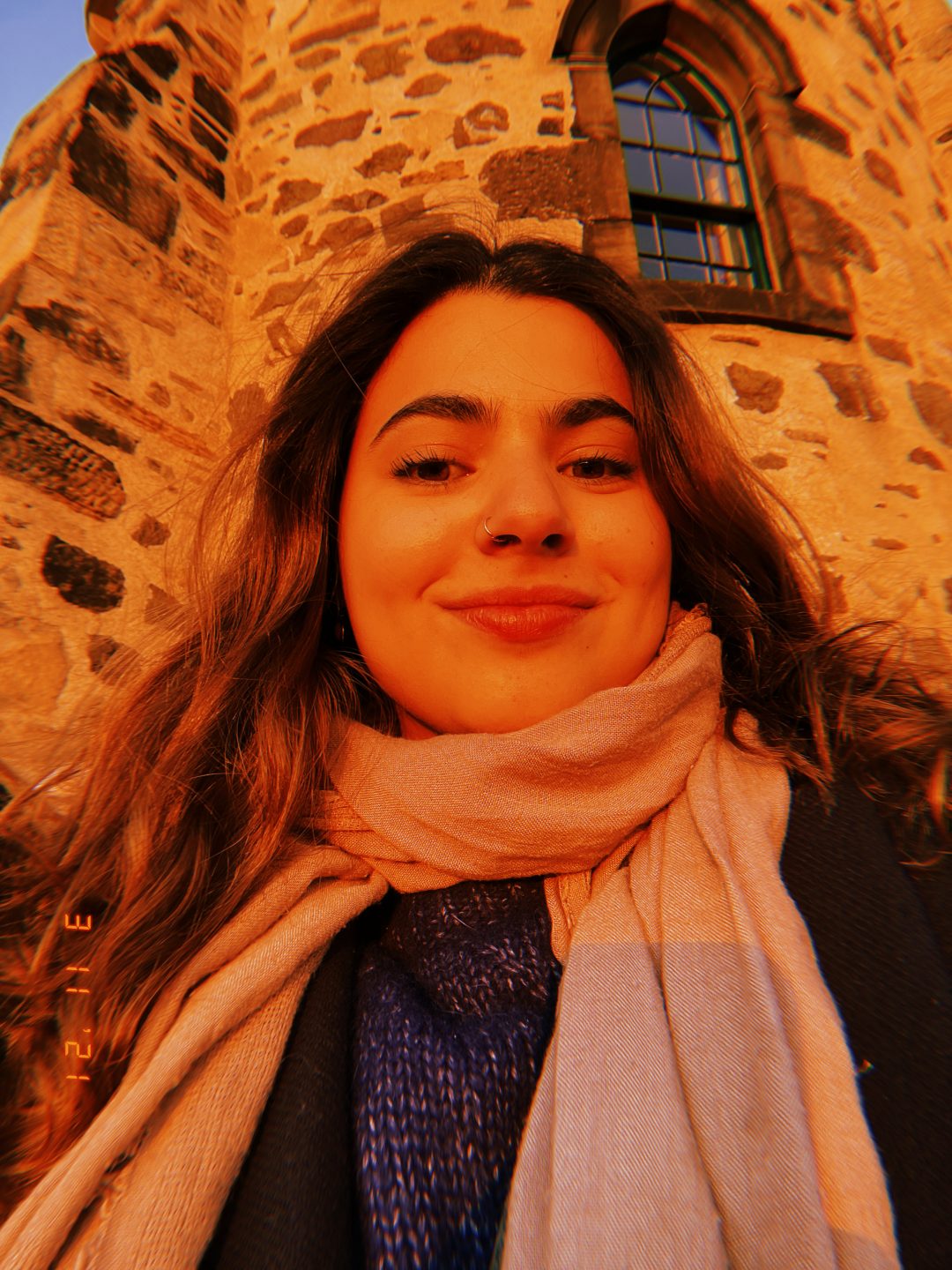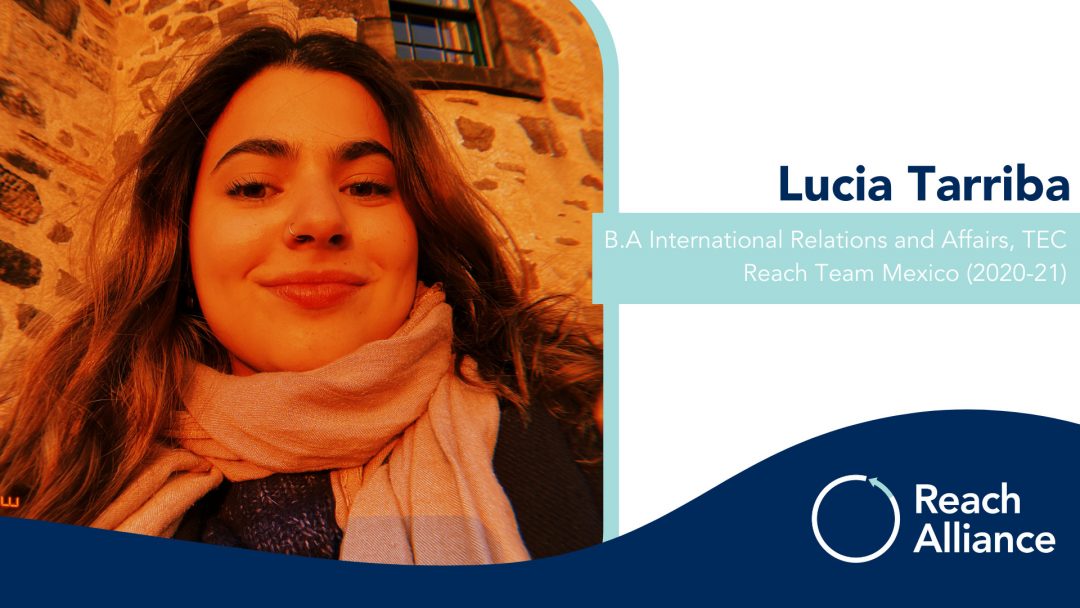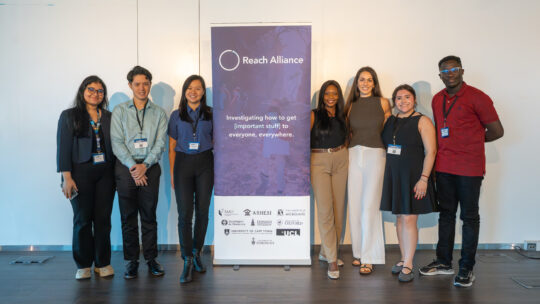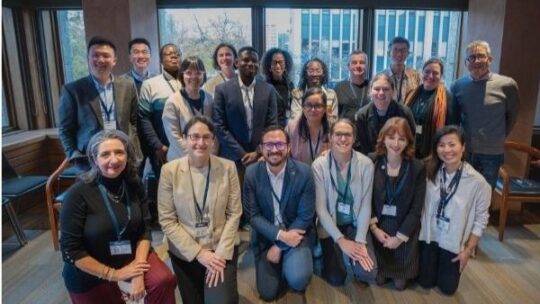News: Alumni, Latest News
Meet Lucia Tarriba of Team Mexico 2020-21: Irregular Settlements in Mexico


Meet Lucia Tarriba (B.A International Relations and Affairs) from Team Mexico Irregular Settlements in Mexico
You studied International Affairs at the University Tecnológico de Monterrey, can you tell us what go you interested in your program of study? Have you been involved in anything else since Reach you’d like to share?
After high school I was not ready for university, so I decided to take two gap years and travel with a non-profit – it was a “slap-in-the-face-with-reality”. I left the bubble I had grown up in and became immersed in different cultures. During this time I discovered a passion for different trajectories of life. I realized that studying international affairs and human rights could open doors for me to make tangible change while still feeling connected to the rest of the world. Recently, I’ve been studying abroad at the London School of Economics and focusing on human rights and IR courses.
How did (or will) your experience in Reach inform your career path [e.g., your case study focused on Irregular Settlements in Mexico] – how (if at all) will this impact you seeking an opportunity after graduating?
Participating in Reach was very eye-opening for me. I got to focus on the more academic aspect of working with indigenous communities and learned to successfully analyze the bigger picture when attempting to better such common problems. This experience cemented my passion for human rights work – for working with people face to face and connecting to their stories. I think my experience in Reach, although very academic, was also very human-focused. This is something I will always take with me. I feel even more committed to pursuing professional opportunities that focus on creating the positive change that people need.
What takeaways or skills [personal or professional] did you gain from your Reach experience that you are applying to your work or study?
I have two key takeaways from my experience at Reach. The first is that not only is it possible to look at things from an analytical and pragmatic perspective and maintain an empathetic approach to problems and solutions, but it is necessary. The second takeaway has to do with teamwork. I could not have grown as much and learned as much as I did without my teammates. They taught me the importance of surrounding myself with people that inspire and ignite my passion for what I am doing.
What is your fondest memory from your experience in Reach?
I remember one day when the team and I met at a coffee shop to discuss what we had discovered throughout the interview process. We spent all day analyzing results and drawing all the connections we saw. We realized there was so much we wanted to cover but could not possibly include it all in the report. We were buzzing with purpose. It was incredible to be doing something that meant so much to us because we could see the potential positive ramifications of the case study. There is nothing quite like working with a dedicated and passionate team.
How has you experience been working working alongside students and faculty across the globe?
It was been awesome to learn and connect to other experiences. I am especially fond of the coaching and mentoring we received throughout the process of creating the case study.
What tips or words of encouragement would you give to someone who is interested in applying to the Reach initiative?
Go. For. It.
It is daunting and impostor syndrome can be very real! But the experience is so enriching and you will learn so much about yourself. Even if you don’t see yourself working in research in the future, I would recommend to just give it a try. You might surprise yourself.
Since Reach, how have you stayed connected with your fellow team members and/or researchers?
My team members and I became very close throughout the Reach process. We have definitely kept in touch and continue to work on other projects together that focus on work with indigenous communities. I feel very lucky to have had the opportunity to grow, learn and create such a passionate project with them.
¡Que gusto coincidir!


